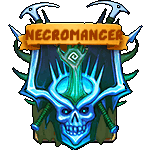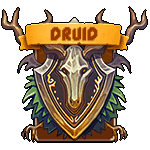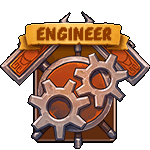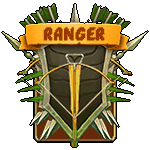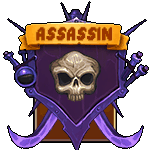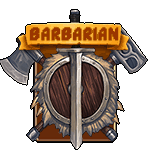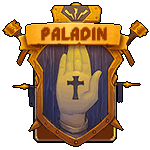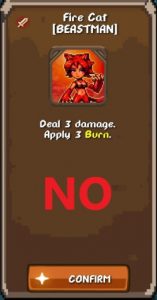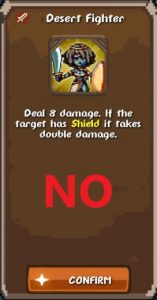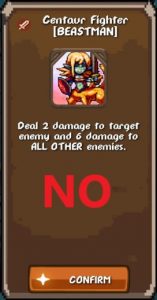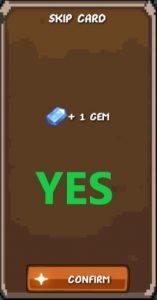General deck-building guide
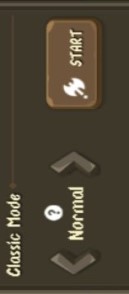
Below guide consists of couple of general advice that can be applied for nearly every class and every run.
Different difficulties require different strategies and the same goes for classes but some general rules mentioned below should be always useful.
On lower difficulties you have much more flexibility in your decisions and many viable deck-building options.
High difficulty requires perfect efficiency. There’s a lot of luck needed, but you also need to know how to use it to maximum effect.
I hope you will find this little guide helpful.
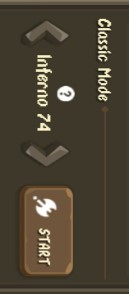
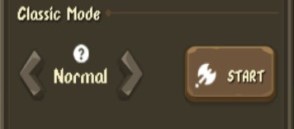
General deck-building guide
Below guide consists of couple of general advice that can be applied for nearly every class and every run.
Different difficulties require different strategies and same goes for classes but some of the rules mentioned below should be always useful.
On lower difficulties you have much more flexibility in your decisions and many viable deck-building options.
High difficulty requires perfect efficiency. There’s a lot of luck needed, but you also need to know how to use it to maximum effect.
I hope you will find this little guide helpful.
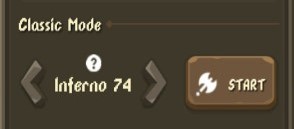
Class upgrade
Upgrading the class ability provides you with a permanent bonus – usually very interesting and tempting. Its worth needs to be considered carefully, particularly against alternative options. Upgrades are usually expensive and not all of them are worth their price.
The decision is chiefly important on high infernos, where your base deck struggles to survive first encounters and needs urgent boosts. While some upgrades help early on and seem necessary for a class to work properly, others are not that great and might be postponed or skipped entirely (some even should).
Another important factor to consider is when to purchase the upgrade. Some upgrades need to be bought as soon as possible, 1st shop preferably, simply because without them you will not be able to progress. But other ones can wait and won’t lose their value. The deciding factor is what will give you the best chances to survive next couple of encounters until you build a stronger deck – an upgrade, healing, buying card?
Thanks for this map, Mixti
We love you!
MAP
On Normal difficulty and couple of first inferno levels (how many depends on class) you can play on any map. Even if there’s couple of fights before the shop you will be able to survive it because enemies don’t deal enough damage to reduce your max HP to 0 yet. Your choice is not limited then and you can choose either the map you find the most interesting or simply take the first that’s generated.
Similarly, all the paths are open for you. In w1 it’s good to go form most elites and chests to collect as much gold and gems as possible. You need these resources to setup your deck. Since at low difficulty you start with little gold, any additional source of it will be appreciated.
MAP
On Normal difficulty and couple of first inferno levels (how many depends on class) you can play on any map. Even if there’s couple of fights before the shop you will be able to survive it because enemies don’t deal enough damage to reduce your max HP to 0 yet. Your choice is not limited then and you can choose either the map you find the most interesting or simply take the first that’s generated.
Similarly, all the paths are open for you. In w1 it’s good to go form most elites and chests to collect as much gold and gems as possible. You need these resources to setup your deck. Since at low difficulty you start with little gold, any additional source of it will be appreciated.
Thanks for this map, Mixti
We love you!
Merchant on floor 3
On high inferno you will see that you can survive only one or two combats (and that is only if you get specific enemies). If you are high enough that you survive only one you obviously choose a map with Merchant at floor 2, but if it’s possible to defeat 2 normal enemies you should aim for floor 3.
1. You can see what cards you are offered. If you add anything to your deck it might determine your other choices.
2. You get more gold so you can afford more services at Merchant. At high difficulty you probably want to heal, buy an upgrade (class dependent), buy a card (if anything good appears) AND remove a card .
On very high difficulty you might be able to afford it all, but on ‘just’ high you have to make some choices. Some classes prioritize upgrades (look below) while other ones want cards.
Avoid elites.
This is particularly important in w1 where you have to rely mostly on your base deck and class ability.
Elites in w1 are extremely difficult and you probably can defeat only specific kinds, depending on the class you had chosen. You do need to limit these encounters to reduce the chances of running into the one elite you can not kill.
Furthermore, in case you want to try your luck and fight 2 elites, hoping you get the 2 you can deal with, fighting 2 such fights, will still probably kill you. The meeting with an elite will probably leave you low on hp and therefore it might be very difficult, or impossible, to win next fight.
Merchant before boss
It’s not absolutely necessary, you might still win if you follow a different path, but it is a good rule to try to follow. If you can get merchant before boss, get it.
You can most probably win normal fight and then boss, but elite before boss is for sure a bad choice.
What are the benefits of having a merchant before boss?
1. You have a chance to heal right before the most difficult fight and entering a boss fight low on hp means death for most decks. Bosses hit hard and often so you most probably will suffer some damage.
2. You have most possible resources to acquire cards, skills and other services.
3. If you possess Telescope or any other skill that refers to Merchant you will make its ability trigger for the boss fight.
Consistency
Good
in
SOME
decks
It’s a key part of a well-structured deck, as it needs to be reliable.
To ensure it, your deck needs to be well balanced in offence, defence and boosts as well as having means of adjusting to any situation.
Don’t fill your deck with too many attack or boost cards. Actually, don’t fill your deck with too many cards. Period.
Even if you build a race deck with many cards that scale based on the number of the race cards, you still need a good balance between your offensive and defensive options. Having many lizards fighters makes your Ant Wizard amazing, but only if you manage to draw him, not the lizard fighters instead.
Making sure you can draw immune or shield t1 is far more crucial than drawing attacks or even boosts. Many, many enemies in RA attack (some even crit) t1 so having means to survive it, either with cards of skills, is a crucial part.
The best way to ensure the right level of consistency are economy cards (giving Mana) and tutor cards (searching deck).
Consistency
Good
in
SOME
decks
It’s a key part of a well-structured deck, as it needs to be reliable.
To ensure it, your deck needs to be well balanced in offence, defence and boosts as well as having means of adjusting to any situation.
Don’t fill your deck with too many attack cards. Actually, don’t fill your deck with too many cards. Period.
Even if you build a race deck with many cards that scale based on the number of the race cards, you still need a good balance between your offensive and defensive options. Having many lizards fighters makes your Ant Wizard amazing, but only if you manage to draw him, not the lizard fighters instead. Keep your deck consistent.
Making sure you can draw immune or shield t1 is far more crucial than drawing attacks or even boosts. Many, many enemies in RA attack (some even crit) t1 so having means to survive it, either with cards of skills, is a crucial part.
The best way to ensure the right level of consistency are economy cards (giving Mana) and tutor cards (searching deck).
Tutor and Economy
Cards that cycle through your deck, help you find a needed card at any time (either in draw or discard pile) or allow you to play more cards per turn are always good. These cards give your deck flexibility, allow you to setup early and make you feel safe.
The game offers variety of these, they come in different rarities, power and possibly serve a different purpose.
The game also offers great economy skills. One of the strongest are- Demon Eye and Necromonicon. Additional max mana, every turn is just such a strong effect you want to have it in (almost: every deck. Anther one is Key of the Portal – gives not only additional mana (only once but still) but also allows you to re-shuffle your starting hand (and the entire deck).
Good
in
EVERY
deck
Tutor and Economy
Cards that cycle through your deck, help you find a needed card at any time (either in draw or discard pile) or allow you to play more cards per turn are always good. These cards give your deck flexibility, allow you to setup early and make you feel safe .
The game offers variety of these, they come in different rarities, power and possibly serve a different purpose.
The game also offers great economy skills. One of the strongest are- Demon Eye and Necromonicon. Additional max mana, every turn is just such a strong effect you want to have it in (almost: every deck. Anther one is Key of the Portal – gives not only additional mana (only once but still) but also allows you to re-shuffle your starting hand (and the entire deck).
Good
in
EVERY
deck
Defence over offence
Have you ever heard the saying “Offence is the best defence”?
Don’t trust it. At Least not when it comes to Rogue Adventure. It has been already said in ‘Consistency’ part but let me repeat – Many enemies attack (some even crit) already in t1. And you draw and can play a limited number of cards from your deck. The more defensive options you have the better chances of drawing them at the right time
Also don’t forget that on high difficulties enemies HP goes really high and taking them down takes time. Even for offensive decks. You do need to be able to survive at least couple of turns. It’s safer to take them down slowly but efficiently than risking that your offensive strategy won’t finish them off quickly enough.
Defence over offence
Have you ever heard the saying “Offence is the best defence”?
Don’t trust it. At Least not when it comes to Rogue Adventure. It has been already said in ‘Consistency’ part but let me repeat – Many enemies attack (some even crit) already in t1. And you draw and can play a limited number of cards from your deck. The more defensive options you have the better chances of drawing them at the right time.
Also don’t forget that on high difficulties enemies HP goes really high and taking them down takes time. Even for offensive decks. You do need to be able to survive at least couple of turns. It’s safer to take them down slowly but efficiently than risking that your offensive strategy won’t finish them off quickly enough.
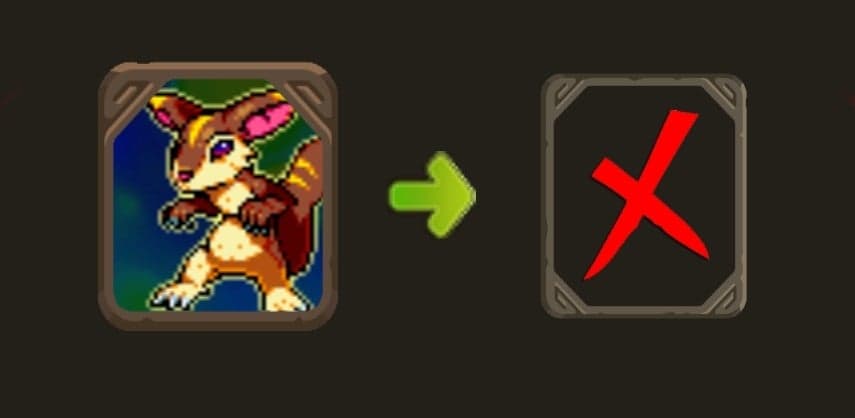
Remove base cards
Removing base cards is one of the ways to keep your deck consistent.
Base cards are usually rather weak and drawing them won’t be very helpful. Some classes have more useful basic deck than others, but every class does have some cards that can be removed. The shorter your deck, the more often you will see your powerful cards.
Remove base cards

Removing base cards is one of the ways to keep your deck consistent.
Base cards are usually rather weak and drawing them won’t be very helpful. Some classes have more useful basic deck than others, but every class does have some cards that can be removed. The shorter your deck, the more often you will see your powerful cards.
NEVER take bad cards
When you’re offered a bad card, don’t take it. When you’re offered only bad cards, DON’T take any. Yes, maybe it’ll help in next fight or 2, but in late game it will make you die. You need to build a strong, reliable deck since the beginning.
Gems are usually the best choice you get. And it is good. Don’t be sad to take it, it will allow you to buy skills or other services at merchant. Choosing a bad card weakens your deck. Choosing gem will make your deck stronger.
You can also acquire cards at Merchant. The same rule applies, even more, as it would cost you valuable gold – don’t take bad ones! Merchant offers many ways to spend your gold – healing, removing or duplicating are all valid choices.

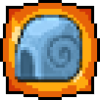
Boosts
Every deck, every class wants and needs boosts. Buffing statistics can be done by skills or cards. Skills provide buffs that are applied automatically when the requirements are met while cards can apply either permanent or temporary boosts when they’re played. You should usually prioritize getting permanent boosts as they are obviously superior.
You need to choose proper boosts for your deck. If your defence relies mostly on immune and daze you won’t need Resistance. If your main source of damage are abilities that don’t benefit from strength (Shaman’s lightning), you most probably won’t need Strength.
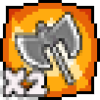

Races
Races can be very strong, if well built, but can also make your deck very inconsistent, if you don’t build it properly. Most of the race cards scale based on race counter which encourages you to have many of them. Be careful.
Adding weak race cards in order to boost your strong race cards won’t really be beneficial for you. It’s much bigger harm to draw these weak cards instead of good ones than the profit of dealing couple more damage or gaining some more shield.
One race goes better with one class, while another with other class. There’s not strict division, but some synergies make particular combinations stronger. As example, Fairies will work great for Wizard, as they are mostly magic cards, but for ranger, whose base ability relies on combat cards, they won’t be the perfect choice. Some classes can build very efficient decks without any race.
Very often it’s worth to take particular card belonging to one race for its own effect, disregarding its race synergies. Elder fairy will be a good choice for most classes even if you don’t add any other fairy to your deck. Choosing such cards might but doesn’t have to lead to building this particular race on later stage, even if you didn’t plan it. If you were lucky enough to find 2 or 3 elder Fairies you might want to add Red Bloom too, which you wouldn’t add if you didn’t have any other Fairies in deck.
Always when making a choice which card to add remember about consistency of the deck. Filling deck with too many mediocre cards will make it unreliably and sooner or later will cause your loss.

Scaling
No matter if you decide to go with races or not, you should always prioritize cards that scale. They are always better than flat value. They grow in strength over time and remain useful until the very end. During your run you boost your strength and resistance by cards and skills. for cards that scale the boost counts multiple times.
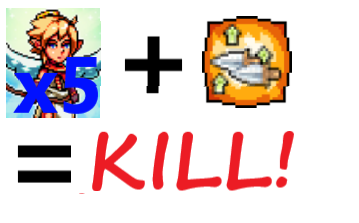
Synergies
Cards in your deck should synergize with your class ability, skills and bonus (if any). And with other cards of course.
If you play warrior you will rather choose combat cards over magic, while for wizard it will be the other way. For warrior Dark Shielded Knight will be a valid choice, but for Assassin not so much.
Same rule applies for skills -Shiruken and Kunai attack won’t be good skills for classes using magic cards only. It might be great for Ranger or Warrior who play mostly combat cards during their turns.
The ability doesn’t determine your choice (warrior wants Snow Queen still), but is an important factor to take into consideration.
Synergies
Cards in your deck should synergize with you class ability and your skills. And with other cards of course.
If you play warrior you will rather choose combat cards over magic, while for wizard it will be the other way. For warrior Dark Shielded Knight will be a valid choice, but for Assassin not so much.
Same rule applies for skills -Shiruken and Kunai attack won’t be good skills for classes using magic cards only. It might be great for Ranger or Warrior who play mostly cmbat cards during their turns.
The ability doesn’t determine your choice (warrior wants Snow Queen still), but is an important factor to take into consideration.
Skills
Skills are bonuses that are automatically applied when the requirements are met. Many skills trigger simply at the beginning of combat, or every turn, but some have other requirements. They never clog your hand and don’t require an action to trigger the effect which makes them very strong.
The general rule that defence is more important than offence applies, so it’s usually better to choose the defensive skill. There’s a variety of them and some of them will fit your deck better than others. Choose carefully.
Note that the strongest skills in game are either defensive (Frost Nova, Freezing Shot, Ice Block, Circular Shield, Invisibility Potion etc)) or economy ones (Demon Eye, Necromonicon, Dark Sigil).
Some of the very good skills are actually cheap. On high inferno these skills will be your best friend. Invisibility potion or Ice block are very helpful already in w1, where you struggle the most, and remain just as useful until the end of game.
Don’t forget to use the re-roll option in shop if you can afford a good skill afterword still.

Cheap
and
effective
and
effective

BEST
skill in the game.
*Freezing shot doesn't count, it WILL be nerfed.
right?
skill in the game.
*Freezing shot doesn't count, it WILL be nerfed.
right?
Know thy enemy
Of course you can’t know them on your 1st, 2nd or 3rd run, not very well at least, but try to remember these most tricky ones and use this knowledge while making decisions.
If you’re in World of the Dead and your deck relies on combat cards, you might need to find a mean to deal with Block. Weather you do it by picking up a card/skill that clears or blocks debuffs, by adding magic defensive cards (immune or dazes) or by going for armored to build defence and have shield on the turn when you’re blocked is your choice. But you need something just in case you run into Evil Elemental or Queen of Snakes.
You can check enemies here
Know thy enemy
Of course you can’t know them on your 1st, 2nd or 3rd run, not very well at least, but try to remember these most tricky ones and use this knowledge while making decisions.
If you’re in World of the Dead and your deck relies on combat cards, you might need to find a mean to deal with Block. Weather you do it by picking up a card/skill that clears or blocks debuffs, by adding magic defensive cards (immunes or dazes) or by going for armored to build defence and have shield on the turn when you’re blocked is your choice. But you need something just in case you run into Evil Elemental or Queen of Snakes.
You can check enemies here
Badges
When you start the game you don’t have any bonuses available. You need to complete Normal difficulty and Inferno 1 to unlock the first one. That’s why this part is relevant only to experienced players.

As soon as you unlock the
first bonus you want to use it. Some class bonuses are stronger while other are weaker, but they’re never bad. There is absolutely no reason to not take the bonus (other than a challenge for yourself).

The higher you climb, the more bonuses you unlock and that’s where you need to make a choice.
The bonuses are not equal in strength and also they are not necessarily getting stronger.

You choose the bonus at the
very beginning of run so you need to know at this point what you want to build. Bonuses usually offer different play-styles and beside being a simple buff, they also add variety.
All guides and advice are purely subjective opinion of Sapphire and should not be considered as coming from Game Developers
